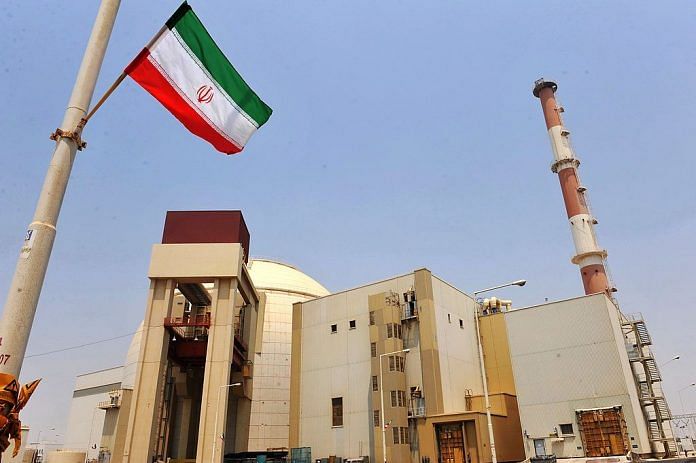
Tehran: Iran’s parliament gave preliminary approval to draft legislation that could end inspections of its nuclear sites by early next year, a move that would further weaken the country’s commitment to an already fragile nuclear deal.
Inspections by international monitors would be restricted if U.S. oil and banking sanctions aren’t lifted within three months of the bill’s approval. The proposal still requires final approval by parliament and the Guardian Council that vets laws, and voting on its provisions was underway on Tuesday.
In accordance with the multi-party nuclear pact struck five years ago, Iran agreed to give United Nations inspectors more intrusive access to atomic sites.
The draft legislation would also revive the mothballed core of a contentious reactor and increase Iran’s stockpile of uranium enriched to 20%, which could then be purified to weapons-grade material at short notice. That reactor could be brought online within two months, state-run IRIB News cited a spokesman for the Atomic Energy Organization of Iran, Behrouz Kamalvandi, as saying on Tuesday.
The nuclear deal has been moribund since U.S. President Donald Trump withdrew two years ago and began reimposing crippling sanctions on Iran. Its fate became even murkier on Friday after a top Iranian nuclear scientist was assassinated in an attack Iran has blamed on Israel.
Top Iranian political and military officials have vowed revenge, but others signaled support for talks with the incoming administration of U.S. President-elect Joe Biden. He’s said he aims to rejoin the agreement, provided Iran returns to the full compliance it abandoned in response to the U.S. withdrawal.
The legislation preliminarily approved Tuesday was first proposed in early November as a signal to the U.S. ahead of its presidential election, but the conservative-majority parliament fast-tracked it following Friday’s assassination.
Foreign Ministry spokesman Saeed Khatibzadeh came out against the bill on Tuesday, saying it “isn’t reflective” of the ministry’s positions and is “neither necessary nor helpful.”- Bloomberg
Subscribe to our channels on YouTube & Telegram
Why news media is in crisis & How you can fix it
India needs free, fair, non-hyphenated and questioning journalism even more as it faces multiple crises.
But the news media is in a crisis of its own. There have been brutal layoffs and pay-cuts. The best of journalism is shrinking, yielding to crude prime-time spectacle.
ThePrint has the finest young reporters, columnists and editors working for it. Sustaining journalism of this quality needs smart and thinking people like you to pay for it. Whether you live in India or overseas, you can do it here.